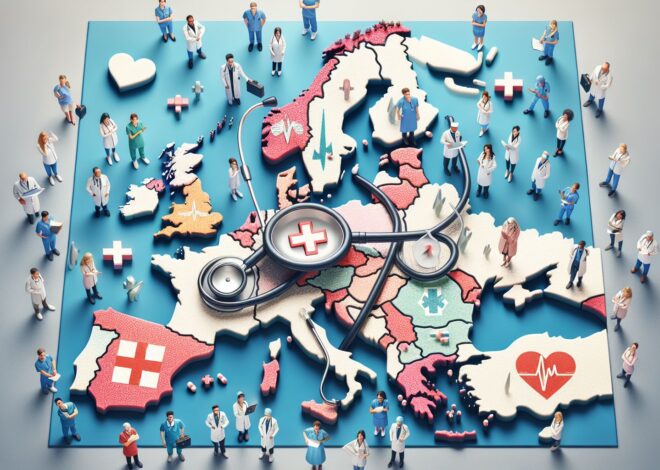
Preparedness and Response of European Health Systems: A Comprehensive Overview
The COVID-19 pandemic has put European health systems to the test, revealing strengths, weaknesses, and areas for improvement across the continent. As health professionals, policymakers, and concerned citizens, it is crucial for us to understand the preparedness and response of European health systems to this unprecedented crisis. In this article, we will explore the key aspects of the readiness and resilience of these systems, shedding light on important insights and future considerations.
I. Introduction
European health systems are known for their robustness, accessibility, and emphasis on public health. However, COVID-19 has highlighted certain vulnerabilities that require our attention. It is essential to analyze the level of preparedness, identify successful strategies, and learn from shortcomings in order to fortify our health systems for the future.
II. Preparedness
Preparedness is the cornerstone of an effective response to any crisis. European health systems had varying degrees of preparedness, driven by factors such as resources, infrastructure, and the ability to mobilize quickly. While countries like Germany and the Netherlands had considerable pandemic planning, including stockpiling of essential supplies and adequate hospital capacity, others faced challenges in these areas.
- Capacity Building:
-
Policymakers must focus on strengthening the overall capacity of health systems, including the number of hospital beds, intensive care units, and healthcare professionals per capita. Weaknesses in capacity were witnessed in countries where healthcare had been subjected to budget constraints and austerity measures in recent years.
-
Supply Chain Management:
-
Ensuring a robust and resilient supply chain for essential medical supplies is critical. The pandemic exposed vulnerabilities in the procurement and distribution of personal protective equipment (PPE), ventilators, and other vital resources. European countries should explore diversified supply chains and minimize reliance on single sources to bolster preparedness.
-
Pandemic Planning and Response Strategies:
- Countries with well-developed pandemic plans, such as Germany, were able to respond more swiftly and effectively. These plans incorporate early warning systems, surge capacity protocols, and clear lines of communication between healthcare institutions, professionals, and policymakers. Sharing best practices in pandemic planning and response should be encouraged to enhance preparedness across Europe.
III. Response
The response of European health systems showcased both successes and challenges, reflecting the complexities of managing a rapidly evolving pandemic.
- Cooperation and Coordination:
-
The crisis highlighted the importance of collaboration between European countries, with information sharing and coordinated actions becoming crucial. Initiatives like the European Centre for Disease Prevention and Control (ECDC) played a pivotal role in facilitating communication and harmonizing response efforts.
-
Health Workforce:
-
The dedication and resilience of healthcare professionals emerged as a key pillar of the response. Their tireless efforts on the frontline saved countless lives and deserve recognition and support. Policymakers should prioritize the well-being and mental health of healthcare professionals, improve working conditions, and invest in training and education to create a robust and adaptable workforce.
-
Innovation and Research:
- European health systems demonstrated remarkable adaptability by fostering innovation and research. Collaboration between academia, healthcare institutions, and policymakers led to advancements in vaccine development, testing methodologies, and treatment protocols. Encouraging further research and investing in innovative solutions should remain a priority for future preparedness.
IV. Conclusion
The COVID-19 pandemic has been a transformative event for European health systems. It has shown that preparedness needs constant attention, resources, and strategic planning. By strengthening capacity, enhancing supply chain resilience, improving pandemic planning, and fostering cooperation and innovation, European countries can be better equipped to face future challenges.
As health professionals, policymakers, and concerned citizens, it is our collective responsibility to remain vigilant and use the lessons learned during these challenging times as opportunities for growth. By investing in the preparedness and response of European health systems, we can ensure the well-being, safety, and resilience of our communities for years to come.



